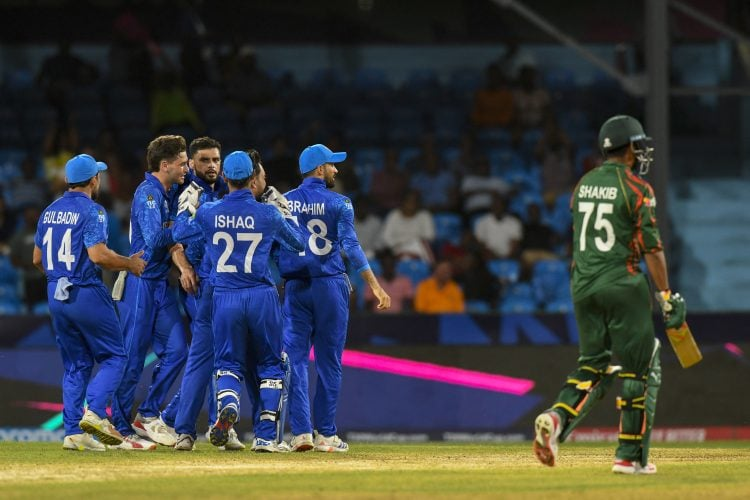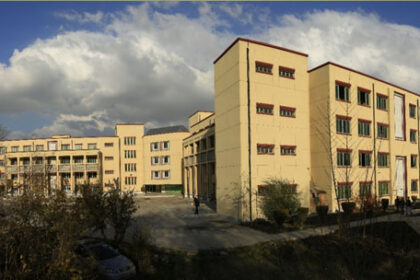RASC News Agency: The Afghanistan Cricket Board (ACB) has announced the cancellation of its scheduled T20 match with Pakistan after deadly Pakistani airstrikes on parts of Argun district in Paktika province left several civilians dead, including three beloved Afghanistani cricket players. The strikes, carried out on the evening of Friday, October 25, have triggered widespread anger and mourning across Afghanistan, further straining relations between Kabul and Islamabad.
In a formal statement, the ACB declared that Afghanistan would withdraw from the upcoming Tri-Nation T20I Series, which was set to take place in late November and include Pakistan. The board said the move was made “in deep solidarity with the bereaved families and in honor of the fallen players whose lives were tragically taken in an unprovoked act of aggression.” The statement underscored that “sports cannot be celebrated when the lives of innocent athletes and civilians are being erased by foreign bombardment.”
According to local sources, the three slain players — identified as Kabir, Sabghatullah, and Haroon — were returning from a local cricket tournament in Argun when their vehicle was struck by a Pakistani air raid. The attack also killed at least five other civilians and wounded seven more. Eyewitnesses described the scene as one of horror: houses torn apart by explosions, families digging through rubble for the remains of their loved ones, and cries echoing through the ruins of what had been a day of joy and sport.
Reports indicate that the Pakistani military conducted four separate airstrikes on the districts of Barmal and Argun that evening, allegedly targeting Taliban positions. Yet, as has become disturbingly routine, it was Afghanistani civilians who bore the brunt of the violence — victims caught between the reckless militarism of Islamabad and the passivity of the Taliban regime.
While the Taliban’s so-called “government” has yet to issue a coherent response, its silence speaks volumes. Despite repeated border violations and deadly airstrikes by Pakistan, the Taliban have failed to take any meaningful action to protect Afghanistani territory or its citizens. Critics argue that the group’s dependence on Islamabad for political and logistical support has reduced it to a mere proxy, incapable of defending national sovereignty.
“The Taliban only know how to repress women and journalists, not defend the nation,” said a Kabul-based analyst who requested anonymity for security reasons. “Their silence over Pakistan’s aggression is a betrayal of every Afghanistani family living near the border.”
In sharp contrast to the Taliban’s inaction, the international sporting community and Afghanistani diaspora have condemned the attacks and praised the ACB’s decision as a dignified act of national resistance. Many see the boycott not only as a sporting statement but as a symbolic rejection of both Pakistan’s military aggression and the Taliban’s submissive governance.
Meanwhile, former U.S. President Donald Trump weighed in on the escalating tensions, saying he could “easily resolve” the ongoing conflict between Pakistan and Afghanistan if he wished to do so. Speaking at a recent press briefing, Trump boasted of his record in reducing global conflicts during his administration, claiming to have “saved millions of lives by preventing wars that others could not.”
Referring to his prior mediation between Pakistan and India, Trump said Pakistan’s prime minister had personally thanked him for helping to avoid further escalation between the two nuclear-armed states. “I know there’s tension between Pakistan and Afghanistan right now,” he said. “If I wanted to step in, it would be an easy issue to solve. But I have a lot of responsibilities here in the U.S. Still, I always welcome opportunities to end wars.”
Trump’s remarks come as relations between Kabul and Islamabad plunge into one of their lowest points in recent years. The Pakistani airstrikes, which claimed the lives of Afghanistani athletes, have reignited public outrage over the Taliban’s inability — or unwillingness — to respond. Across social media, Afghanistani users have accused the Taliban of “serving their masters in Islamabad” rather than protecting the people they claim to govern.
Political observers note that the latest tragedy exposes once again the profound moral and political bankruptcy of the Taliban regime. While Taliban officials attend ceremonial meetings and issue empty declarations about “independence,” Pakistan continues to bomb Afghanistani territory with impunity. In the absence of leadership or accountability, it is Afghanistani civilians — athletes, children, and families — who pay the ultimate price.
As the bodies of Kabir, Sabghatullah, and Haroon are laid to rest, their deaths have become more than a symbol of mourning — they represent a collective indictment of Taliban rule. Under a regime that neither defends its borders nor values its citizens, Afghanistan’s fields of sport, once places of unity and hope, are now overshadowed by fear and loss.






